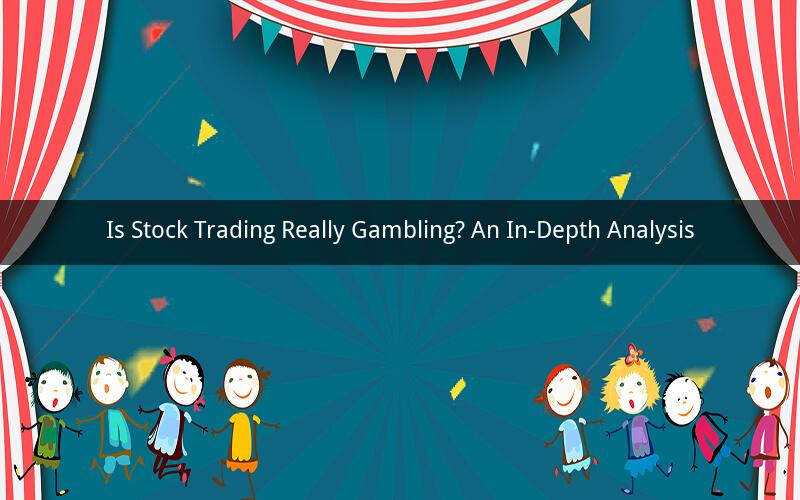
Stock trading has been a popular topic among investors and traders for decades. However, there has always been a debate about whether stock trading is gambling or not. In this article, we will explore the similarities and differences between stock trading and gambling, and try to determine whether the two activities can be considered the same.
The first thing that comes to mind when we hear the word "gambling" is luck. People often associate gambling with random outcomes and no control over the result. In stock trading, some might argue that luck plays a significant role, as stock prices can be unpredictable. However, this is not entirely true. While luck can have an impact on short-term stock price movements, successful stock trading requires a combination of skill, knowledge, and experience.
One of the key differences between stock trading and gambling is the level of skill involved. In gambling, the outcome is based on chance, and the player has no control over the result. On the other hand, stock trading requires a certain level of skill, such as understanding market trends, analyzing financial statements, and making informed decisions. Traders who are well-versed in these areas can potentially achieve long-term success, while those who rely solely on luck may face significant losses.
Another difference between stock trading and gambling is the time frame. In gambling, the outcome is usually immediate, as players bet on a single event or a series of events. In stock trading, the outcome can take days, weeks, months, or even years to materialize. This means that traders need to be patient and disciplined, as success in stock trading is often a result of long-term efforts.
Despite the differences, there are some similarities between stock trading and gambling. One of the most notable similarities is the potential for high rewards and losses. Both activities involve taking risks, and the rewards can be substantial. However, the risks are also significant, as traders and gamblers can lose a significant amount of money if they are not careful.
Another similarity is the psychological aspect of both activities. Both traders and gamblers may experience emotions such as excitement, fear, and greed. These emotions can cloud judgment and lead to poor decision-making. Therefore, it is crucial for both traders and gamblers to maintain a level head and stay disciplined.
To better understand the differences between stock trading and gambling, let's take a closer look at some common gambling activities, such as slot machines and lotteries.
Slot machines are a classic example of gambling. They are designed to be easy to play, requiring no skill or knowledge. Players simply insert money, pull a lever, and hope for the best. In this sense, slot machines are more similar to stock trading than traditional forms of gambling, such as poker or blackjack, which require some level of skill.
Lotteries are another example of gambling that is often compared to stock trading. Both involve buying tickets with the hope of winning a prize. However, the odds of winning are typically very low in both cases. While lottery winners may achieve a significant windfall, the chances of winning are so slim that it is not a viable long-term strategy.
In conclusion, while there are some similarities between stock trading and gambling, such as the potential for high rewards and losses, the level of skill required, and the psychological aspects of both activities, the two cannot be considered the same. Stock trading is a more complex and strategic endeavor that requires a combination of skill, knowledge, and experience, while gambling is typically based on luck and chance.
Questions and Answers:
1. What is the main difference between stock trading and gambling?
Answer: The main difference is the level of skill required. Stock trading involves analyzing market trends, financial statements, and making informed decisions, while gambling is based on luck and chance.
2. Can stock trading be considered a form of gambling?
Answer: While there are some similarities, such as the potential for high rewards and losses, stock trading cannot be considered a form of gambling because it requires a significant level of skill and knowledge.
3. Is luck a factor in stock trading?
Answer: Yes, luck can play a role in short-term stock price movements, but successful stock trading requires a combination of skill, knowledge, and experience.
4. How can a trader minimize the risk of losing money in the stock market?
Answer: A trader can minimize the risk of losing money by conducting thorough research, diversifying their portfolio, and maintaining a disciplined approach to trading.
5. What is the importance of psychological discipline in stock trading?
Answer: Psychological discipline is crucial in stock trading, as emotions such as excitement, fear, and greed can cloud judgment and lead to poor decision-making. Maintaining a level head and staying disciplined is essential for long-term success.